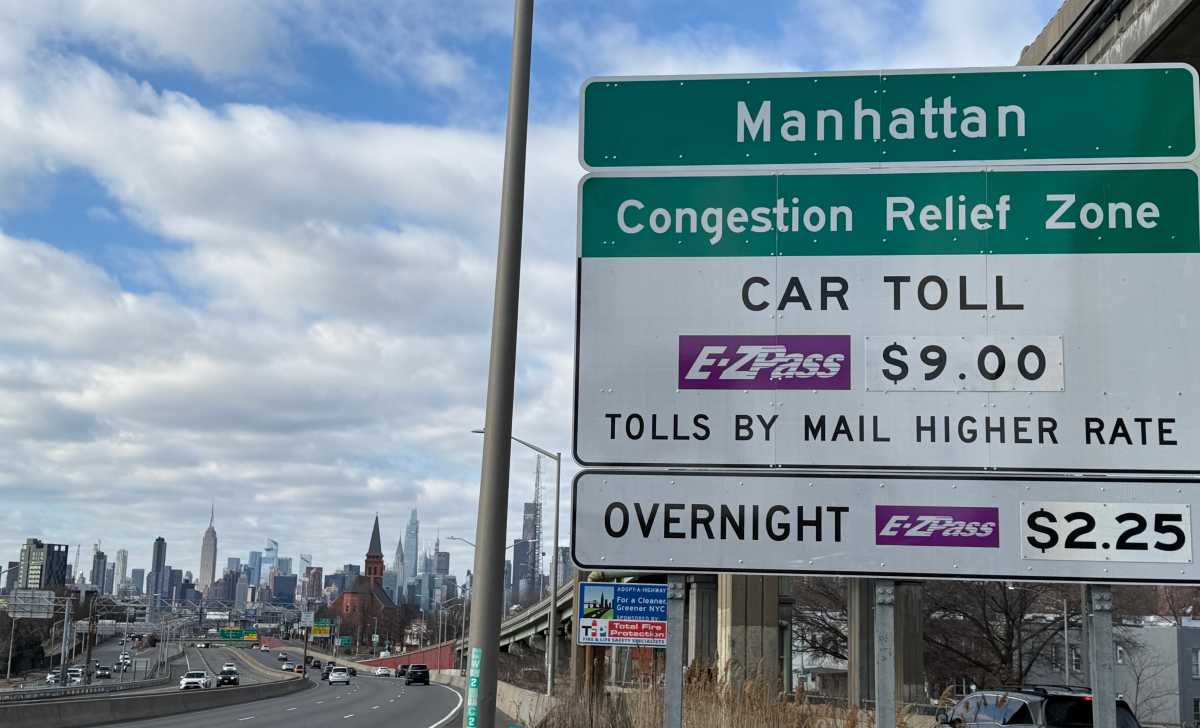The debate over New York City’s controversial congestion pricing program took a new turn on Wednesday, Feb. 19, when the U.S. Department of Transportation (USDOT) sent a letter to Gov. Kathy Hochul announcing plans to end the tolling program.
The letter, penned by Transportation Secretary Sean Duffy, cites several reasons for the decision, including concerns that the program lacks toll-free options for some drivers and that its primary goal — raising revenue for transit rather than reducing congestion — misses the mark.
The USDOT’s move to end congestion pricing comes after the tolling program was launched on Jan. 5 following approval from the Biden administration. Under the program, drivers must pay a toll of $9 to enter Manhattan below 60th Street between 5 a.m. and 9 p.m.
Advocates for the program point to a reduction in traffic congestion and faster travel times in the early weeks since its introduction. MTA data shows that over one million vehicles passed through the Congestion Relief Zone during the first three weeks.
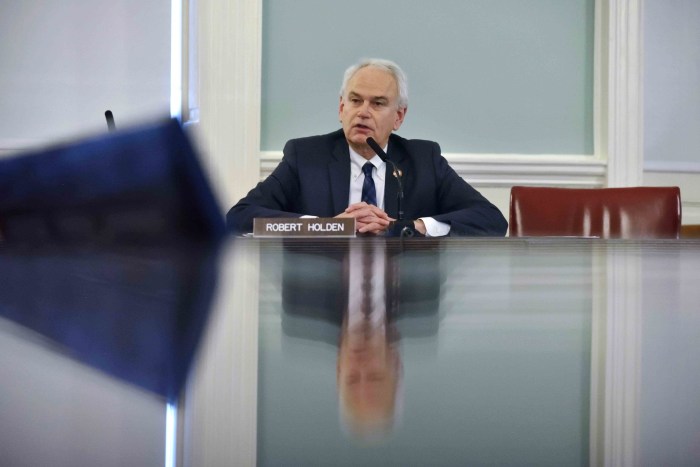
However, the announcement of a federal move to end the toll program has sparked sharply contrasting reactions from Ridgewood’s elected officials. Some praised President Trump’s intervention, while others defended the tolling program as essential to New York’s future.
Council Member Robert Holden, representing the District 30 neighborhoods of Ridgewood, Maspeth, Middle Village, Glendale, Elmhurst, and Rego Park, lauded the move, calling it a “major victory” for working and middle-class families.
Holden, a member of the Common Sense Caucus, which also includes Council Members Joann Ariola and Vickie Paladino, slammed the program as an “unfair congestion pricing scheme” and “a scam tax” that unfairly burdened New Yorkers.
“This is a major victory for working- and middle-class families who were forced to shoulder another financial burden just to navigate their own city. New Yorkers deserve real solutions to traffic and transit issues—not another cash grab disguised as policy,” Holden stated.
Echoing Holden’s sentiment, the Common Sense Caucus issued a joint statement praising Trump for keeping his promise to end the “punitive congestion pricing tax.”
The caucus members emphasized their support for policies that, they argue, “put New Yorkers first.” The group’s statement highlights explicitly the relief that the end of the tolling program would bring to “hardworking families, commuters, and small businesses.”
In contrast, Assembly Member Claire Valdez, who represents Ridgewood, Sunnyside, Long Island City, Maspeth, and Woodside, voiced strong support for the program. She emphasized its necessity in tackling New York City’s severe traffic congestion and the ongoing struggles of the city’s public transit system.
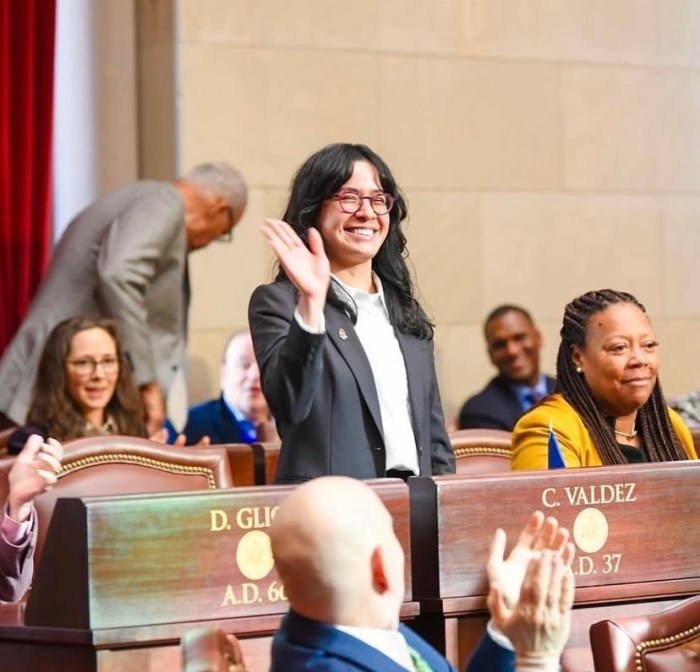
“New York City has some of the worst traffic and produces more automobile carbon emissions than any other city in the country. We have a transit system that millions of working-class New Yorkers depend on every day with a $16 billion budget hole in it,” Valdez said.
“Congestion pricing is the solution to all of these challenges. It’s a win for working people, and I applaud the governor and the MTA for defending it.”
Senator Joseph Addabbo, who has previously expressed concerns about the program’s implementation, took a more cautious approach.
Addabbo, who represents Ridgewood and many other neighborhoods as part of New York’s 15th Senate District, has long questioned the tolling program’s financial impact on local businesses, taxi drivers, and vulnerable populations like the elderly and individuals with disabilities.
In April 2023, Addabbo introduced legislation to delay the program’s enforcement, arguing that its sudden financial burden could harm local economies.
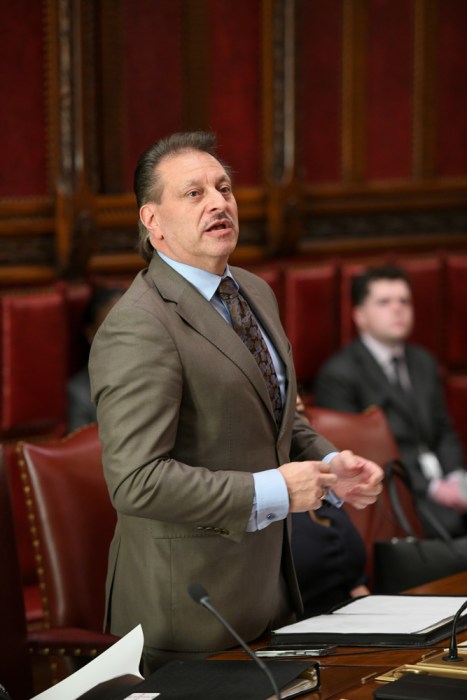
“I believe the recent legal battle over whether to halt congestion pricing and thus placing its future into uncertainty means we should start thinking about a possible, viable alternative,” Addabbo stated.
“This looming interruption in congestion pricing provides a crucial opportunity for all stakeholders to engage in meaningful dialogue, ensuring that any future alternative measures are equitable, realistic, sustainable, and considerate of the diverse needs of our communities while addressing the funding needs of public transportation.”
Addabbo remains committed to collaborating with federal, state, and local officials to work towards a balanced approach that supports both the transit systems and the well-being of all New Yorkers.
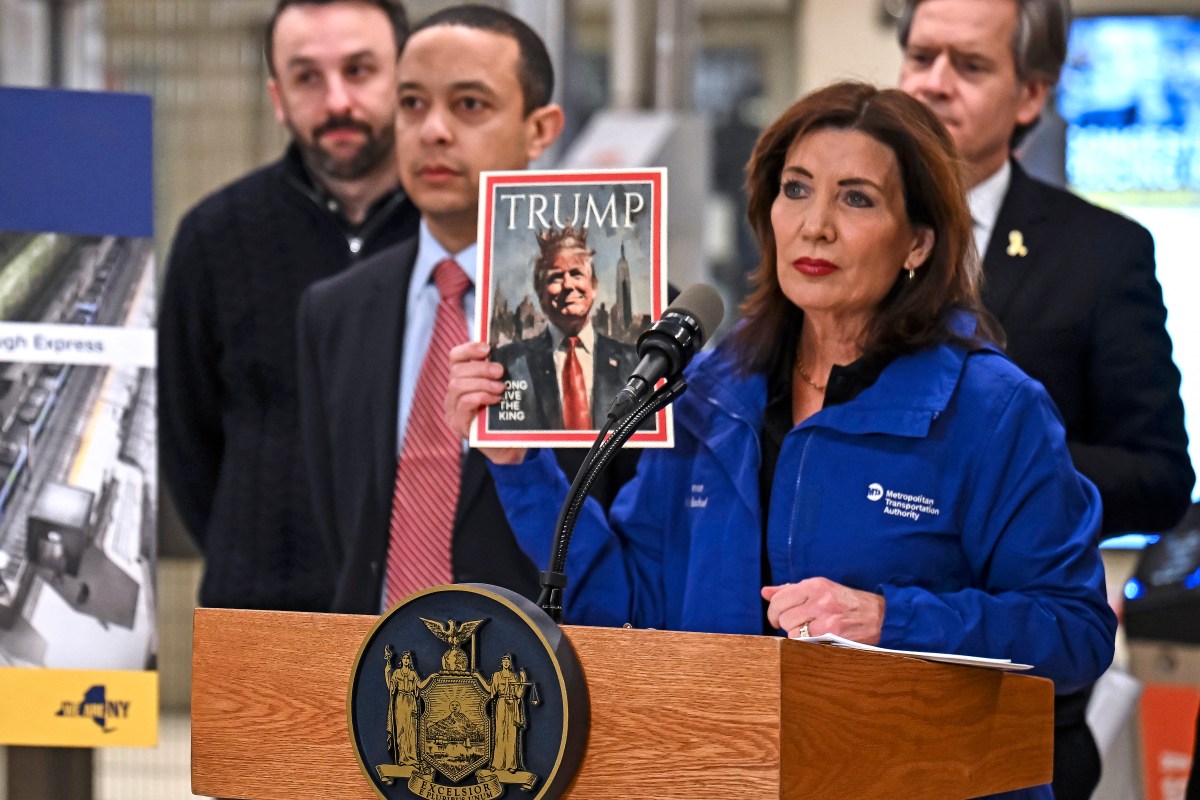
Hochul has reiterated the importance of public transit to New York City’s economy and future, particularly in light of Trump’s decision. She emphasized that public transit is the “lifeblood” of New York City and crucial to its economic survival.
While federal and local officials continue to weigh in on the controversial program, the future of congestion pricing remains uncertain.

